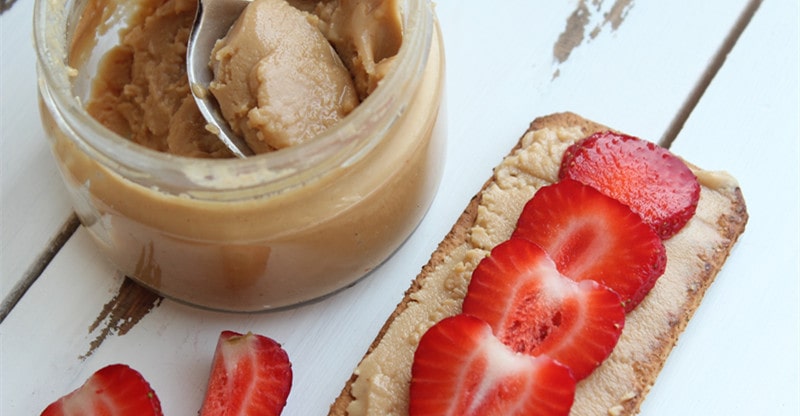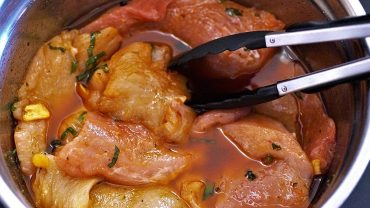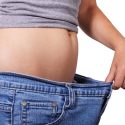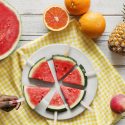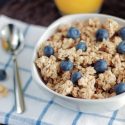Attention! Warning. These 6 foods make you fat
Weight loss is probably the most common goal in the fitness industry, bodybuilding. No one wants to be overweight, and your desire to lose weight may come from aesthetic goals or health goals. Weight loss doesn’t happen overnight – it doesn’t even happen in a week or two – it’s a gradual thing that takes time. However, the formula for weight loss is actually relatively simple.
Firstly, you’ll see the word ‘weight’ a lot around here, so let’s clarify one thing. Weight refers to your entire body weight, including bones, fluids, muscles, and fat. When most people talk about weight loss, they actually want to focus on losing weight.
So, when you see the word ‘weight’ used in this article, think of it as fat loss. That’s what we’re talking about here, the formula for fat loss is simple: calories burned < calories consumed. If you’re not good at maths, that means fewer calories burned than calories consumed. You are alive burning calories every day, and you can increase the calories you burn with exercise.
The calories you consume come from the food you eat and the drinks you drink. This is where most people trip up! You may exercise every day but wonder why you’re not losing weight. It’s usually because you’re consuming too many calories. If you don’t track your calories, you won’t be able to understand this.
In addition, there are often foods and drinks that are rich in calories and you consume them without realizing the damage they are doing.
When the researchers looked more closely, they identified five foods that were associated with the most weight gain during the study period.
Potato chips
Other potatoes
Sugary drinks
Unprocessed red meat
Processed meats
1. Peanut butter
Peanut butter is a healthy food when consumed in moderation. A little toast is a good snack, or a little in some porridge can make a meal more filling. It’s full of fibre and protein, which means it will usually make you feel fuller. The problem is that peanut butter is high in calories. Two spoonfuls of this stuff can contain almost 200 calories!
And therein lies the problem: people are eating too much peanut butter without realising it. Start weighing the portions you use by weighing the food before and after you add the peanut butter. You’ll be surprised at how much you use in one serving. Imagine that you eat three tablespoons a day, which equates to almost 600 calories of peanut butter.
Like many things on this list, peanut butter isn’t unhealthy – it’s just high in calories and should be eaten in moderation. Keeping track of calories and weighing your food is the best way to make sure you don’t go over the limit – this rule applies to everything else on this list!
2. Granola
Following in the footsteps of peanut butter, we have granola. Again, this is usually considered a healthy food – and it can be. However, granola contains things like oats and nuts – and in most cases a fair amount of sugar.
All of this combines to form a very calorific snack that is usually added to food as an ingredient. The serving size on the packet is usually 45 grams, which can contain up to 225 calories! Let’s say you eat granola for breakfast and have some granola and yoghurt before lunch. By the second meal of the day, you may have consumed almost 500 calories of plain granola.
There is the same problem as in the peanut butter case – people don’t know how much granola they are using. As a result, you can eat much more than a portion at a time, thus increasing the number of calories. So even though your meals and snacks may seem healthy, they are actually calorie-rich, allowing you to avoid the deficit needed to lose weight.
3. Alcohol
Unlike the first two things, alcohol is different in that it is a) a drink and b) unhealthy. Alcohol is probably one of the most unhealthy things you can put into your body. It is closely linked to a range of health problems, increasing the likelihood of cardiovascular disease and many cancers.
You also get the added implication that it is technically a drug, making it a highly addictive substance. As you can see at https://enterhealth.com/等网站上看到的那样, many people seek alcohol withdrawal services every year. This is a serious situation and should add to the reasons for not drinking too much alcohol.
From a weight-loss perspective, drinking is a terrible thing to do. An average bottle of beer contains close to 150 calories. Now, think about what most people do on weekends – they drink a lot of alcohol. The chances of finishing ten beers in two days are high. That’s over 1000 calories going into your body, and the difference between alcohol and something else is that it’s basically empty calories. Drinking it will not provide you with additional health benefits – in fact, your health will suffer.
At least with peanut butter and granola, you can benefit from adding more fiber and protein to your diet. So, if you really want to lose weight, cut back on alcohol, as it may prevent you from achieving your goals.
4. Sweets and chocolate
By now, you should realize that eating sweets and chocolate is probably not a good idea if you want to lose weight. However, most people don’t really understand why. Firstly, you think it’s because they are unhealthy because of the amount of sugar they contain.
This is true, but all that sugar adds up to make many sweets and chocolates very high in calories. A small bar of regular chocolate can contain 150-250 calories, and a bag of fudge can contain almost 350 calories!
The biggest problem is that you don’t have any problems eating these. It’s effortless to finish a bag of sweets in an hour or so, and you’ll probably have a chocolate bar afterward. It’s OK to treat yourself every now and then, but that’s why tracking calories is so important.
By tracking, you know how many snacks you have. You’ll know that if you eat a whole bag of fudge, you’ll exceed your calorie intake for the day. Instead, you can have just a small handful, allowing you to enjoy eating sweets without going over your calorie limit.
5. Full fat milk
We have another liquid on the list, but this one is much better than alcohol. Again, this falls into the category of healthy foods that are often over-consumed. A glass of whole milk often contains around 140 calories. Suppose you have a glass of milk and some cereal with breakfast – you have 280 calories.
Apart from being high in calories, whole milk is really good for you. It’s high in protein and calcium, which helps your muscles and bones get stronger.
As with all things, moderation is key! Alternatively, you could try using skim or semi-skimmed milk. They are both rich in protein, they just contain less fat than whole milk, which means they have fewer calories. A pro tip is to never drink whole milk when ordering a drink from a coffee shop as it makes them super calorific.
6. Protein powder
The last thing on this list isn’t actually a food source, but a supplement. Protein powders are very popular because everyone is crazy about protein. Muscles are made of protein, so you need plenty of it to help them repair and grow.
This is even more important when working out, and increasing muscle mass should be the goal for fat loss. The more muscle you have, the more calories your body burns, which means you lose weight faster. At least, that’s a simple breakdown of what’s happening!
So many people take protein powder supplements when they exercise, which can be a good thing. However, some protein powders are full of calories. Some may include enough to replace an entire meal – so be careful. We’re talking hundreds of calories in a drink that takes a few seconds to finish. The trick is to find the right protein powder for your goal.
If fat loss is your goal, look for protein powders that are low in calories. It really is that simple, and you can start drinking some shakes to see the benefits of protein without burning extra calories.
How many of these things will become part of your daily diet? This should open your eyes to why you may be gaining weight – or struggling to lose it. Your workout routine is perfect, it’s just some of the foods in your diet that are letting you down.
Take note of the golden rules and tips repeated in this guide: track your calories, try weighing to control portion sizes, and eat in moderation. Doing these things will help you to become more aware of where your diet is going wrong and allow you to fix it. From here, you will start to see the weight loss goals you want to achieve.





